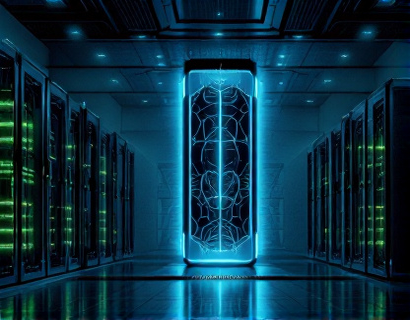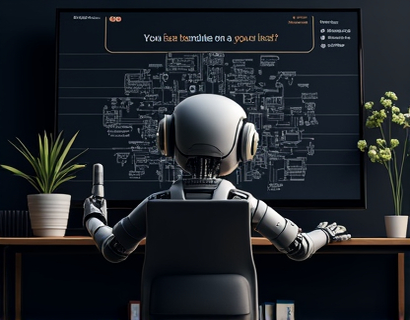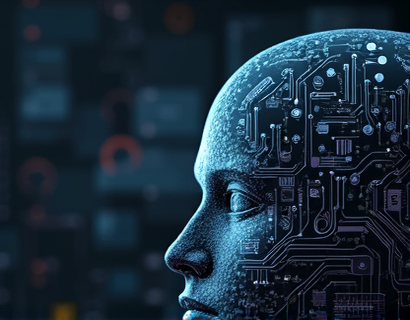Transforming Access to Specialized Knowledge: The Power of AI-Driven Chat Interfaces in the Bridge Industry
The bridge industry, a critical component of infrastructure development and maintenance, has traditionally relied on specialized knowledge that is often confined to industry experts and detailed technical documents. However, with the advent of AI-driven chat interfaces, this specialized knowledge is becoming more accessible than ever before. These innovative chat solutions are not only breaking down barriers to information but are also creating a safe and educational platform for users of all ages and backgrounds. This article delves into how these AI-driven chat interfaces are revolutionizing the way we interact with and access information in the bridge industry, making complex insights engaging and understandable for everyone from children and students to educators and tech enthusiasts.
The Need for Accessible Specialized Knowledge
The bridge industry is intricate, involving a wide range of specialized knowledge including engineering, materials science, construction techniques, and safety protocols. This complexity often makes it challenging for non-experts to gain a comprehensive understanding. Traditional methods of accessing this knowledge, such as academic papers, technical manuals, and industry conferences, can be daunting and inaccessible to many. The gap between those with access to specialized knowledge and those without is significant, limiting the potential for innovation and improvement in the field. An AI-driven chat interface addresses this issue by providing a user-friendly platform that democratizes access to this valuable information.
How AI-Driven Chat Interfaces Work
At the core of these innovative chat solutions is artificial intelligence designed to understand and respond to user queries with precision and relevance. These AI systems are trained on vast databases of industry-specific content, ensuring that the information provided is not only extensive but also up-to-date. Users interact with the chat interface in natural language, asking questions or seeking information on various topics related to the bridge industry. The AI then processes these queries, retrieves the most pertinent data, and presents it in a clear and concise manner. This interaction is seamless and intuitive, making it easy for users to navigate through complex topics.
Tailored Information for Diverse Users
One of the most significant advantages of AI-driven chat interfaces is their ability to tailor information to the individual needs of users. Whether a child is curious about how bridges are built, a student is researching bridge engineering for a project, an educator is looking for teaching resources, or a tech-savvy individual wants to stay updated on the latest industry trends, the chat interface adapts to provide content that is both relevant and engaging. For children, the interface can simplify complex concepts using visuals and interactive elements, making learning both fun and educational. For students and educators, it offers in-depth resources and discussion points that can enhance learning and teaching experiences.
Ensuring Content Accuracy and Safety
A critical aspect of these AI-driven chat interfaces is the emphasis on content accuracy and user safety. In the bridge industry, where precision and safety are paramount, ensuring that the information provided is accurate and reliable is non-negotiable. The AI systems are continuously updated and verified by industry experts to maintain the highest standards of accuracy. Additionally, the platforms are designed with robust safety measures to protect users, especially children and students. This includes filtering out inappropriate content, ensuring data privacy, and providing a secure environment for learning and exploration.
Enhancing Educational Experiences
For educators, these chat interfaces offer a powerful tool to enhance the educational experience. Teachers can use the platform to provide students with real-time, accurate information on bridge-related topics, supplementing traditional teaching methods with interactive and dynamic content. The chat interface can serve as a virtual assistant, answering student questions, guiding them through complex concepts, and even suggesting additional resources for deeper learning. This not only enriches the learning process but also helps in developing critical thinking and research skills among students.
Fostering a Community of Knowledge Seekers
Beyond individual use, AI-driven chat interfaces in the bridge industry are also fostering a community of knowledge seekers. Users can engage in discussions, share insights, and collaborate on projects, creating a vibrant and supportive community. This community aspect is particularly beneficial for professionals in the industry, who can stay updated on the latest developments, best practices, and emerging technologies. The chat interface serves as a hub for continuous learning and professional development, breaking down silos and promoting a culture of shared knowledge and innovation.
AI Enthusiasts and Tech-Savvy Individuals
For AI enthusiasts and tech-savvy individuals, these chat interfaces offer a fascinating glimpse into the future of information interaction. The underlying technology, including natural language processing, machine learning, and data verification, is at the forefront of AI research and development. These users can explore the technical aspects of the chat interfaces, understand how they work, and even contribute to their improvement. The transparency and openness of these platforms make them an excellent resource for those interested in the intersection of AI and industry-specific knowledge.
The Future of Information Interaction
The integration of AI-driven chat interfaces in the bridge industry is just the beginning. As the technology continues to evolve, we can expect even more sophisticated and personalized interactions. The potential applications extend beyond the bridge industry, with similar chat interfaces being developed for other specialized fields such as healthcare, finance, and environmental science. The future of information interaction is not just about accessing data; it's about having meaningful, context-aware conversations that enhance understanding and drive progress.
Conclusion
The AI-driven chat interface is transforming the way we access and interact with specialized knowledge in the bridge industry. By providing accurate, up-to-date, and tailored information, these platforms are making complex insights accessible and engaging for users of all ages and backgrounds. The focus on content accuracy and user safety ensures that the information is reliable and secure, making it an invaluable resource for everyone from children and students to professionals and tech enthusiasts. As we look to the future, the potential for these chat interfaces to further revolutionize information interaction is immense, promising a more informed and connected world.










































